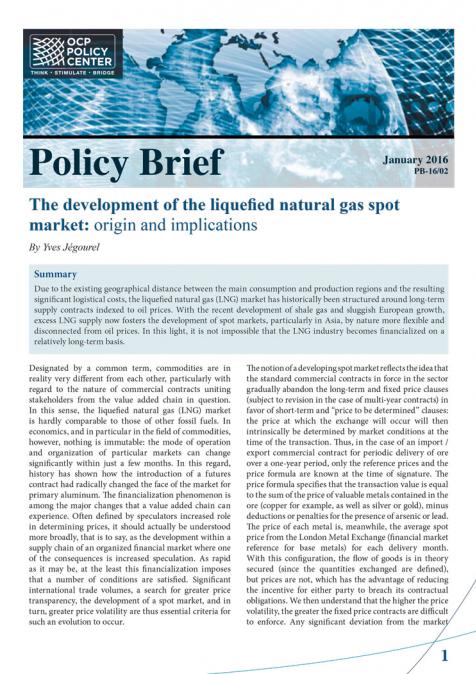Paul-Simon Handy, Regional Director for East Africa and Representative to the African Union, delves into the complexities of mediation in internal African conflicts. Despite half of the UN peacekeeping forces being deployed on the African continent, sustainable peace remains elusive. Mr Handy explores the reasons behind these challenges, shedding light on the intricate dynamics and obstacles that hinder effective conflict resolution.
RELATED CONTENT
-
Prakash LounganiJanuary 27, 2016This podcast is performed by Prakash Loungani. He is Senior Fellow at Policy Center for the New South and Advisor in the Research Department of the International Monetary Fund, was interv ...
-
AuthorsJanuary 25, 2016The water-energy-food (WEF) nexus has emerged over the last few years as an innovative and holistic platform for resource management and allocation. Unlike many other disciplines that make their way to the policy circle through academic debates, the nexus emerged from the global and policy business community as a platform to guide sustainability efforts. It is, with no doubt, that the nexus will find its way to the implementation of the sustainability development goals (SDGs), appro ...
-
Thomas GomartJanuary 21, 2016Ce podcast est délivré par Thomas Gomart. A partir d'une réflexion sur le risque pays, Thomas Gomart analyse les relations entre Washington, Pékin et Moscou en se focalisant sur les quest ...
-
-
AuthorsJanuary 13, 2016Due to the existing geographical distance between the main consumption and production regions and the resulting significant logistical costs, the liquefied natural gas (LNG) market has historically been structured around long-term supply contracts indexed to oil prices. With the recent development of shale gas and sluggish European growth, excess LNG supply now fosters the development of spot markets, particularly in Asia, by nature more flexible and disconnected from oil prices. In ...
-
-
 AuthorsMichel PetitJanuary 12, 2016The expression “green revolution” is controversial today; yet my own assessment is that, in spite of many valid criticisms, the Green Revolution was a major achievement for humankind: it made erroneous the Malthusian predictions of the 1960s and 70s that it would be impossible to provide enough food for a rapidly growing world population and that major humanitarian crises, including famines, would occur in several countries within a few years, particularly in South Asia. In a wider ...
AuthorsMichel PetitJanuary 12, 2016The expression “green revolution” is controversial today; yet my own assessment is that, in spite of many valid criticisms, the Green Revolution was a major achievement for humankind: it made erroneous the Malthusian predictions of the 1960s and 70s that it would be impossible to provide enough food for a rapidly growing world population and that major humanitarian crises, including famines, would occur in several countries within a few years, particularly in South Asia. In a wider ... -
 AuthorsJanuary 12, 2016Q: The U.S. Federal Reserve on Dec. 16 raised interest rates, ending what Fed Chairwoman Janet Yellen called an “extraordinary seven-year period” during which policymakers kept the federal funds rate near zero in an effort to support the economy. How will the Fed’s action affect Latin American economies, many of which are struggling with anemic growth and low prices for their commodity exports? How will the interest rate hike affect Latin American countries’ ability to pay off their ...
AuthorsJanuary 12, 2016Q: The U.S. Federal Reserve on Dec. 16 raised interest rates, ending what Fed Chairwoman Janet Yellen called an “extraordinary seven-year period” during which policymakers kept the federal funds rate near zero in an effort to support the economy. How will the Fed’s action affect Latin American economies, many of which are struggling with anemic growth and low prices for their commodity exports? How will the interest rate hike affect Latin American countries’ ability to pay off their ... -
 AuthorsJanuary 11, 2016Brazilian scholarly output has rapidly increased, accompanied by the expansion of domestic collaborations. In this paper, we identify spatial patterns of collaboration in Brazil and measure the role of geographic proximity in determining the interaction among researchers. Using a database comprising more than one million researchers and seven million publications, we consolidated information on interregional research collaboration in terms of scientific coauthorship networks among 4 ...
AuthorsJanuary 11, 2016Brazilian scholarly output has rapidly increased, accompanied by the expansion of domestic collaborations. In this paper, we identify spatial patterns of collaboration in Brazil and measure the role of geographic proximity in determining the interaction among researchers. Using a database comprising more than one million researchers and seven million publications, we consolidated information on interregional research collaboration in terms of scientific coauthorship networks among 4 ... -
 AuthorsNisrine OuazzaniJanuary 6, 2016The economic growth of the African continent and its positioning as an emerging force is a reality no longer questioned. Optimism surrounding the Africa rising narrative is supported by a growing young workforce, an expanding middle class, new discoveries of natural resources and minerals, relative political stability and infrastructure developments. Economic and international financial actors now recognize the potential that the continent represents for the world economy, consider ...
AuthorsNisrine OuazzaniJanuary 6, 2016The economic growth of the African continent and its positioning as an emerging force is a reality no longer questioned. Optimism surrounding the Africa rising narrative is supported by a growing young workforce, an expanding middle class, new discoveries of natural resources and minerals, relative political stability and infrastructure developments. Economic and international financial actors now recognize the potential that the continent represents for the world economy, consider ...





